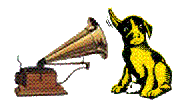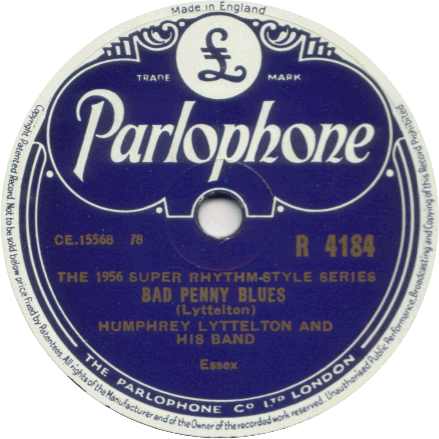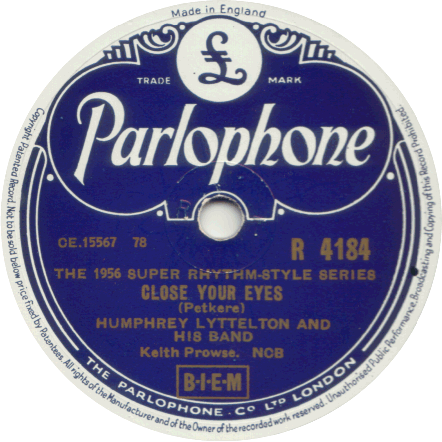
The Beatles
at 78 RPM
|
Cool 78 of the Month November 2005 |
|
Humphrey Lyttleton and his Band Bad Penny Blues Parlophone R 4184(UK) Summer 1956 |

|
|
Two years before Phil Spector ventured into Gold Star with the Teddy Bears, an equally important man would be honing his production skills across the Atlantic. That man was Joe Meek, and his unique style would debut on this 1956 release. Although Joe had begun working as engineer at IBC studios in 1955, because he loved to tinker with sound, since childhood he had been cobbling together various electronic odd bits in his granny's shed. At IBC, Joe engineered radio shows for the likes of Radio Luxemburg as well as records for artists like Gary Miller. Joe was so adept at sound balancing, that in April of 1956 he was tasked with not only recording but also producing a new release, Bad Penny Blues, by jazz artist Humphrey Lyttleton. The story has it that Humph left the session early, opening the door to let Joe tinker. And tinker he did, close miking the drums, and emphasising the lower notes of the piano riff, a riff that would resurface on another Parlophone release 12 years later. The result would leap from the speakers and would capture your ears like no other recording of its time. As it would happen, Humphrey Lyttleton hated it. Jazz was simply not recorded that way. Then the record began to climb up the charts, and Humph hated it all the way to the bank, with Bad Penny Blues as much as becoming his signature tune. Bad Penny Blues climbed to number 19 in the British charts in July of 1956, a feat unheard of for a jazz record. At this time it is unknown if it had a US or Canadian release (Please email me with any info on a US or Canadaian release). Officially, Joe would not receive production credit for this release. That would go to Denis Preston, a well knownn jazz producer. But among those in the business, Joe's work would be acknowledged, and his career would take off. Over the course of the next decade he would produce records such as the hit Angela Jones by Michael Cox, Tribute to Buddy Holly by Mike Berry, and Have I the Right by the Honeycombs. One of his artists would be the legendary axeman Ritchie Blakemore. He would even produce a record called I Hear a New World that sonically created an outer space world filled with Globbotts and Saroos that was every bit as trippy and trancy as the electronic dance music of 35 years later. His zenith would be reached with a record that encapsulated in sound the technological marvel that was humankind's conquest of outer space, Telstar by the Tornados. Telstar would not only hit number 1 in the UK, but would repeat that feat in the US and Canada, something unheard of. It was even released on 78 in Brazil! But Joe's life was a tortured one. He was filled with paranoia. He dabbled in the occult. He was a gay man at a time when being gay was deeply entombed in a closet of darkness. Times changed, and just as the beat sound of the British Invasion would make the records that Phil Spector produced begin to sound old and busted, such was the fate for Joe. In 1967, Joe commited suicide. One has to wonder what the Beatles would have sounded like with Joe behind the glass. The closest we can come to that fantasy is with via the riveting piano riff of Bad Penny Blues, punched to the forefront by Joe. Years before sampling, that riff would become the backbone for their song Lady Madonna. |
|
B Side Humphrey Lyttleton and his Band Close Your Eyes |

|
